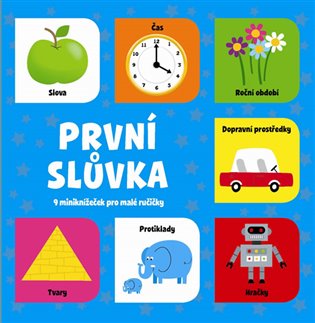
City of Laughter
Knihu koupíte v
1 e-shopu
od
375 Kč
Pokud se vám po kliknutí na tlačítko "Do obchodu" nezobrazí stránka knihy ve vybraném e-shopu, je třeba vypnout AdBlock ve vašem prohlížeči pro naši stránku.
Návod na vypnutí je například na adrese https://o.seznam.cz/jak-vypnout-adblock/#1.
Krátký popis
A rich and riveting debut spanning four generations of Eastern
European Jewish women bound by blood, half-hidden secrets, and the
fantastical visitation of a shapeshifting stranger over the course
of 100 years An ambitious, delirious novel that tangles with
queerness, spirituality, and generational silence, City of Laughter
announces Temim Fruchter as a fresh and assured new literary voice.
The tale of a young queer woman stuck in a thicket of generational
secrets, the novel follows her back to her family’s origins, where
ancestral clues begin to reveal a lineage both haunted and shaped
by desire. Ropshitz, Poland, was once known as the City of
Laughter. As this story opens, an 18th century badchan, a holy
jester whose job is to make wedding guests laugh, receives a
visitation from a mysterious stranger—bringing the laughter the
people of Ropshitz desperately need, and triggering a sequence of
events that will reverberate across the coming century. In the
present day, Shiva Margolin, recovering from the heartbreak of her
first big queer love and grieving the death of her beloved father,
struggles to connect with her guarded mother, who spends most of
her time at the local funeral home. A student of Jewish folklore,
Shiva seizes an opportunity to visit Poland, hoping her family’s
mysteries will make more sense if she walks in the footsteps of her
great-grandmother Mira, about whom no one speaks. What she finds
will make her question not only her past and her future, but also
her present. Electric and sharply intimate, City of Laughter
zigzags between our universe and a tapestry of real and invented
Jewish folklore, asking how far we can travel from the stories that
have raised us without leaving them behind.
Vývoj ceny
Aktuální Ø cena knihy City of Laughter je 375 Kč
Výběr knih vydavatele
Grove Press / Atlantic Monthly Press
Zobrazit všechny knihy vydavatele
Grove Press / Atlantic Monthly Press
Naše tipy
- Právě probíhající akce a slevy na knihy
-
Knihydobrovsky.cz | do 24.12.2025
-
Knihydobrovsky.cz | do 24.12.2025
-
Bookshop.cz | do 31.12.2025
- zobrazit všechny akce











